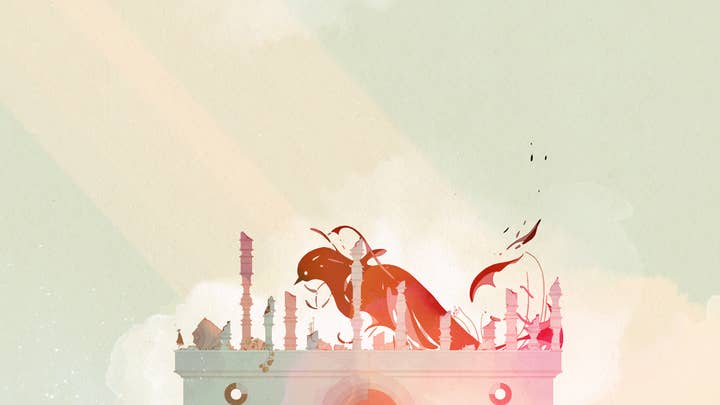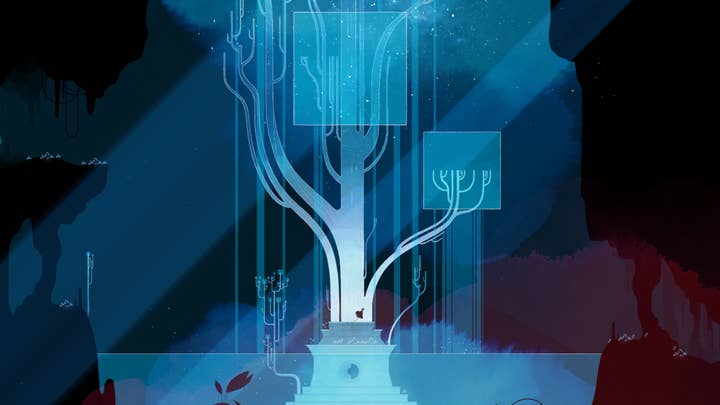Not every game needs to sell 500k - Devolver
Co-founder Nigel Lowrie discusses how the publisher chooses its games and the importance of Gris as an "arthouse" title
Since Devolver Digital began in 2009, the publisher hasn't been shy about taking risks on indies. By extension, neither has co-founder Nigel Lowrie.
Though Devolver started out essentially as the new publisher for Serious Sam after 2K began to focus on other titles, it didn't stay that way for long. After publishing successful HD versions of Croteam's over-the-top shooter series, it tested the waters of indie publishing further by pairing the successful Serious Sam IP with other developers, such as Vlambeer. That connection with Vlambeer was what led Devolver to Dennaton Games and Hotline Miami.
"Hotline Miami made us realize what all is out there," Lowrie said. "I was a fan of Jonatan Söderström's work; he had done a lot of small, non-commercial games, and Vlambeer introduced us to him and said, 'He wants to do a more commercial game. Like something he could sell.' So [Hotline Miami's success] was a very clear indication that you can take something of that size and experimental nature and sell it and have a pretty big audience get excited about it. I think it broadened what we thought was possible."
Devolver's broadening is obvious at a glance, looking at the publisher now. Though Devolver continues to publish Serious Sam games along with other Croteam titles such as The Talos Principle, its catalogue since has expanded to include a wide range of genres, studios, and styles of games. That was represented well at Devolver's booth at PAX, which was effectively a microcosm of Devolver's publishing strategy.
"Hotline Miami helped us understand what's possible in what are considered 'niche' games, including how big of a niche that really is"
"You look at what we have here at PAX West: We have smaller games, bigger games, a licensed IP with Reigns, and we can find a way to connect small, independent developers to a larger audience. And we can maybe bring them to places they couldn't go on their own in terms of sales and awareness of their games and, in the case of Reigns [Game of Thrones], pairing them with an HBO license. Hotline Miami helped us understand what's possible in what are considered 'niche' games, including how big of a niche that really is."
Though casting a wide net can be beneficial, ultimately a publisher has to say yes to some things and no to others. I asked Lowrie if there was any common thread in what made a game a Devolver game, and he laughed - a Nintendo representative had asked him the same thing earlier that day, and he admitted he still didn't have a definitive answer.

"We don't look for anything in particular - we know it when we see it," he said. "Someone who's trying something a little different, whether it's in storytelling or visual approach, like Gris, or gameplay approaches. For example, the Shadow Warrior series. Shadow Warrior is a first-person shooter, but they decided they wanted to focus on melee combat. In most first-person shooters, your melee weapon means you ran out of ammo and you have to find more. But no, in this game, melee is the most powerful thing, but you're closer to enemies and they can group around you. So, it's little things like that. We just look for a developer who's trying something a little different. Something that's a cool idea that we want to bring to a bigger audience. It's as simple as that."
"Gris is an excellent example of a game where you can't do stunts or a loud, crazy booth"
Most prominent in Devolver's PAX booth this year was Gris, a platforming game with few details surrounding it that looks like a watercolor painting. For Lowrie, that distinct visual appeal is what made Gris fit in perfectly with the rest of Devolver's titles at the show this year, even though most of the others were a touch more boisterous in their presentation.
"For Gris, the artstyle was special," he said. "Conrad [Roset, artist on Gris]'s art is incredible. You see it in still, then you see it in motion and it's breathtaking. And when you play Gris, there's a really nice, subtle narrative in it; a real emotional story. And the music by Berlinist is incredible. I've been listening to it non-stop at home. We listen to it in the car. Everyone always references games like, 'It's a piece of art come to life,' and this is the most true case of that I've ever seen."
That contrast between Gris and the other titles in Devolver's booth is even more pronounced when you compare it to the rest of the publisher's recent catalogue. Devolver's name is often associated with the company's self-aware, unabashed marketing and over-the-top moments such as its satirical E3 presentations. But even though Gris would be a poor fit for events like that, Lowrie says it's still compatible with Devolver's creative style.
"When we looked at Gris, we wondered what we could do [to market it], and one of the things we were so excited to do was rent out an art gallery," he said. "Look at the concept art; it belongs in a museum. Gris is an excellent example of a game where you can't do stunts or a loud, crazy booth. We just had the key art for the game, lit it, and put the game out there, and it spoke for itself. You don't have to trick it up. Like our E3 presentation, we couldn't put that in there. That was obviously a bit of satire and over-the-top, so we had to find games that were over-the-top. So SCUM, My Friend Pedro, and those kind of games. You have to pair them in the right setting."

Though Gris represents a slightly different approach from Devolver's norm, it still fits into a category of titles Devolver publishes that Lowrie calls "arthouse" games, a category that also includes recent release Minit. Lowrie says those classifications are largely internal and don't mean that any one game is better than another, but that the arthouse classification in particular is an important one for Devolver.
"It doesn't mean anything other than that the game has a very 'art-forward' design to it, as in games as an artform, and doing something design-wise we think it interesting. It's not a general market everyone will love. Not everyone's going to love Minit, not everyone's going to love Gris. But we think they bring something important and interesting to games, and we can help bring them to the audience out there that will appreciate them."
"We're not saying no to games because we don't think they can sell 500,000 copies. That's a stupid way of looking at it"
Lowrie was firm on that point: pushing the medium forward is something Devolver wants to do, even if the games doing that work don't always sell as well as others.
"Red Strings Club was another one of ours that has a limited commercial appeal," Lowrie said. "If you took the entirety of gamers, 100%, there's maybe 5% that would really be interested in that. Now that 5% is a huge business still, but we look at something like that and we think it's doing something important for video games, showing what types of stories you can tell with what kinds of characters, and we think that's important. It was less important that that game make us and the developer millions of dollars - which it didn't. It was successful for the scope that it was; it allowed them to keep making games. And we want to work on anything Deconstructeam does next, because we think they're important creators doing neat things.
"Our hope is to find a balance between games that sell a shitload of copies and are good, and games that may only sell 50,000 copies, but are also good. We think it's important to do those type of games. We do all the spectrum. We're not saying no to games because we don't think they can sell 500,000 copies. That's a stupid way of looking at it."
PAX organizer ReedPOP is the parent company of GamesIndustry.biz.
